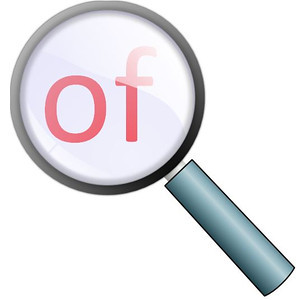Is "Of" Overused?
Posted: October 24, 2013
 Think about your writing habits, and see how long you can go without using the word "of". Trying to avoid using it too frequently can be more difficult than you think. Work to reduce overusing "of", but don't try to eliminate it altogether.
Think about your writing habits, and see how long you can go without using the word "of". Trying to avoid using it too frequently can be more difficult than you think. Work to reduce overusing "of", but don't try to eliminate it altogether.
 Think about your writing habits, and see how long you can go without using the word "of". Trying to avoid using it too frequently can be more difficult than you think. Work to reduce overusing "of", but don't try to eliminate it altogether.
Think about your writing habits, and see how long you can go without using the word "of". Trying to avoid using it too frequently can be more difficult than you think. Work to reduce overusing "of", but don't try to eliminate it altogether.
Mark Nichol, Editor of Daily Writing Tips, shows alternatives to reduce the use of "of".
Reduce the Use of “Of”
How long can you go on writing without using of? You’ll quickly find that it’s an invaluable word, but writers often take it for granted, and its repeated use is a sure sign of prolixity.
Of is a preposition, a word positioned before its object: In “a stroke of luck,” for example, of is the preposition of luck. We rely on such constructions often — and, in moderation, they’re perfectly acceptable — but we can easily overuse them. Fortunately, they’re (usually) easily revised: For example, with a few strokes of the pen (or a few taps on the keyboard), “a stroke of luck” becomes “a lucky stroke.”
The formula is easy — just convert the second noun in a “(noun) of (noun)” phrase to an adjective and move the first noun after the adjective. But such a strategy isn’t always elegant: “A pen’s stroke” might appeal to a computer seeking the most concise, efficient phrasing, but it is jarring to a human mind, which prefers “a stroke of the pen.”
![]() Read the entire article Reduce the Use of “Of”, at Daily Writing Tips.
Read the entire article Reduce the Use of “Of”, at Daily Writing Tips.